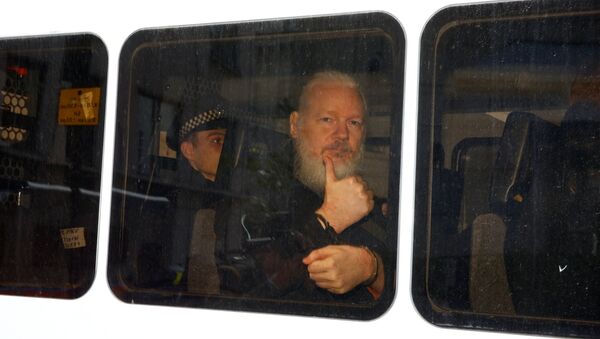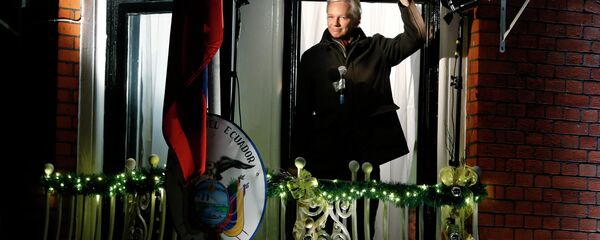Jennifer Robinson, Julian Assange’s lawyer, said Ecuador had made “outrageous” claims about Assange’s actions during his 7-year stay in the embassy, stating that accusations of Assange putting faeces on the walls of the Ecuadorian Embassy were all lies. According to Robinson, the claims were largely fabricated as a pretext to kick him out.
“Ecuador has made these allegations to justify the unlawful and extraordinary act of letting police come inside an embassy”, Robinson told Sky’s Ridge on Sunday in comments.
She pointed out that the WikiLeaks founder first went in to the embassy in 2012 to avoid “US injustice” rather than prosecution by Swedish law enforcement.
While he is still facing charges in the US for “conspiracy to commit computer intrusion” after WikiLeaks published sensitive diplomatic cables in 2010, the lawyer noted he has cooperated with the Swedish investigation on the allegations of rape and misconduct.
“This was and is not about avoiding facing Swedish justice. It is about avoiding US injustice”, Robinson said, adding that Swedish prosecutors earlier visited the embassy to hear his testimony and then “closed the case”.
Addressing the excrement claims, Robinson said in the journalist’s defence that over the entire 7 years she has been visiting him in the embassy, “this man has been inside a room with no outside access”. “Inside the embassy it's become more difficult”, she concluded.
Assange was nabbed by UK police on 11 April at the Ecuadorian Embassy where he had been confined for roughly seven years. The detention followed Ecuadorian President Lenin Moreno revoking his diplomatic asylum, claiming that he had repeatedly violated international conventions and daily-life rules in the diplomatic premises. In the wake of the move, Rafael Correa, Ecuador’s president when Assange was granted asylum, branded Moreno a traitor.
Referring to the alleged reasons for the expulsion, Ecuador's Ambassador to the UK Jaime Marchan made several claims in an interview to the Daily Mail about Julian Assange's "daily protests" during his seven-year reclusion in Ecuador's diplomatic premises in London, claiming that “when Assange wanted to be unpleasant” he “put excrement on the walls and underwear with excrement in the lav”.
READ MORE: Assange's Father Urges Australia to Bring Him Home Amid Potential US Extradition
Assange was granted asylum in 2012 after being released on bail by UK authorities. He was earlier arrested in the UK at Sweden's request, where he was being investigated in a sexual assault case. Assange, who shot to fame after his brainchild WikiLeaks leaked classified documents about US military operations in Iraq and Afghanistan and State Department cables, denied the sexual misconduct accusations, saying that they were politically biased and designed to have him extradited to the US.
Sweden dropped the charges in 2017, however, Assange chose not to leave the embassy after British police said they intended to apprehend him for allegedly violating the conditions of his bail.



